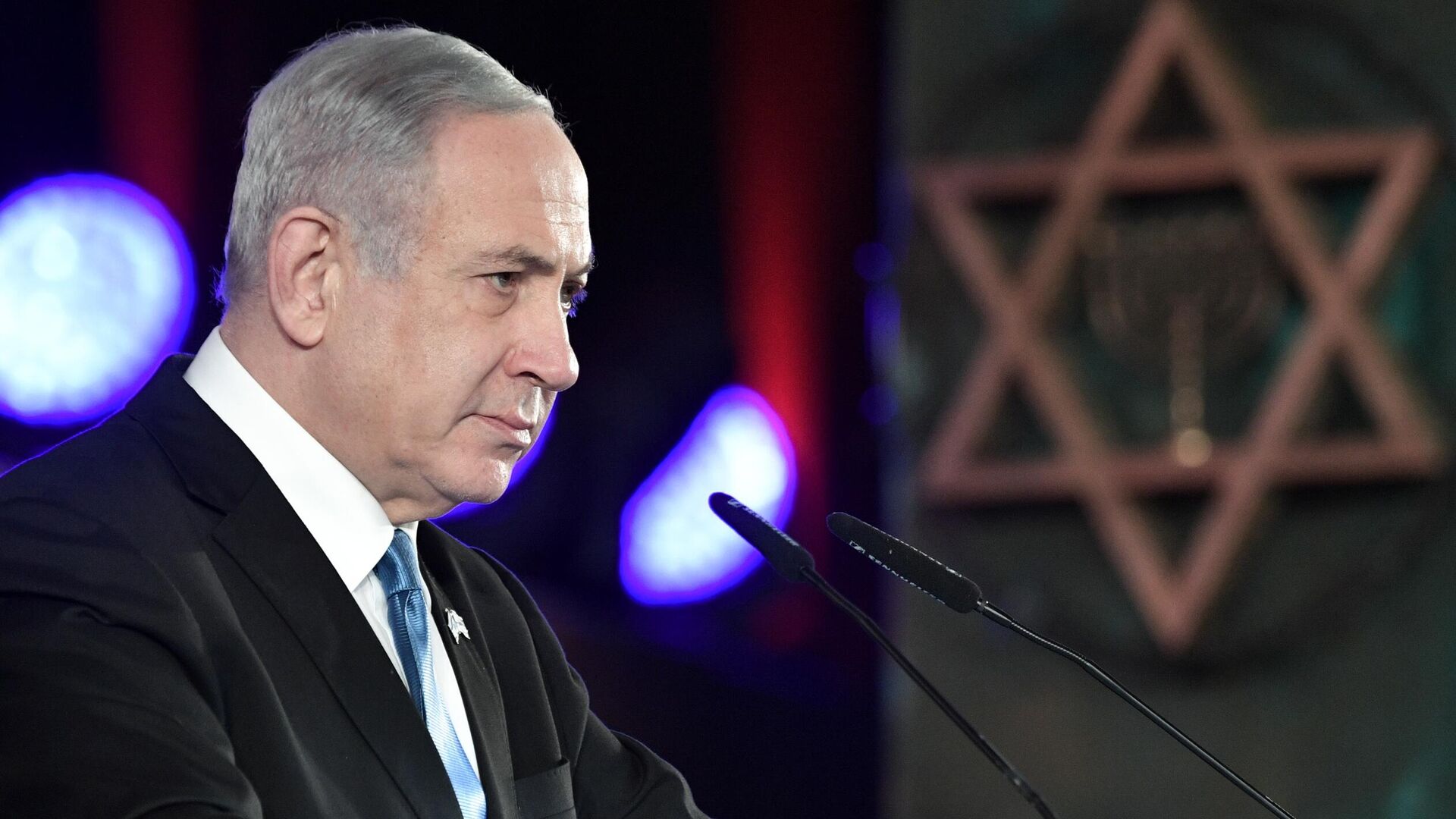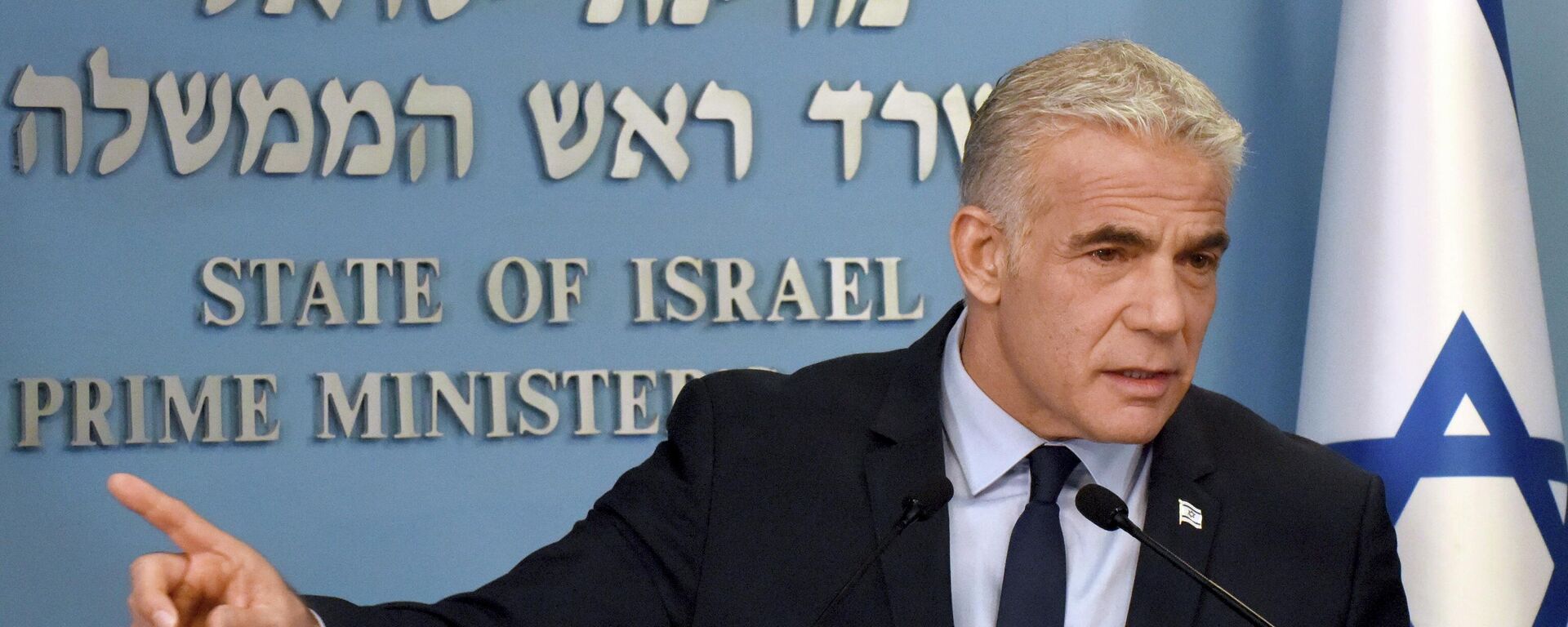https://sputnikglobe.com/20230801/israels-prime-minister-says-crisis-over-judicial-reform-will-not-escalate-into-civil-war-1112321647.html
Israel's Prime Minister Says Crisis Over Judicial Reform Will Not Escalate Into Civil War
Israel's Prime Minister Says Crisis Over Judicial Reform Will Not Escalate Into Civil War
Sputnik International
Israeli Prime Minister Benjamin Netanyahu does not believe that the ongoing social-economic crisis in the country, sparked by a controversial judicial reform, could escalate into civil war, as feared by Israel's president.
2023-08-01T12:14+0000
2023-08-01T12:14+0000
2023-08-01T12:14+0000
world
benjamin netanyahu
israel
reform
https://cdn1.img.sputnikglobe.com/img/07e7/01/07/1106115141_0:0:2525:1421_1920x0_80_0_0_4dd1357ce2d3e33c6b6fe2be75ee55f8.jpg
"There will not be civil war, I guarantee you that," Netanyahu told media in a Monday interview, adding "When the dust settles, people will see that Israel's democracy has been strengthened and not weakened. And I think people's fears, that have been stoked, whipped up, will subside and they will see that Israel is just as democratic as before, even more democratic." The prime minister stated that the judicial reform, proposed by his government, provides for correction of "imbalance in Israel's democracy, where the judiciary arrogated to itself all powers of the executive branch and the legislature." In March, after months of fruitless attempts to reach a compromise on the judicial reform between the ruling coalition and the opposition, Israeli President Isaac Herzog said that the crisis, if not resolved, can lead to a "real civil war." Since January, Israel has been gripped by mass protests sparked by the reform, which many see as the government's attempt to reduce its accountability before the Supreme Court. Organizers estimate that some of the rallies gathered over 500,000 participants. The protests have often been accompanied by detentions, road closures and clashes with police. On July 24, the Israeli parliament passed a bill constituting the key component of Netanyahu's judicial reform. All opposition lawmakers boycotted the vote, and a new wave of mass protests ensued. The bill cancels the Supreme Court's right to review and annul certain government decisions and appointments, which the opposition sees as a safeguard against abuse of power. The judicial reform seeks to limit the Supreme Court's powers to overturn government decisions by declaring them unreasonable and gives the latter more say in appointing judges. Supporters of the reform say that it is a necessary step to allow elected officials to conduct policies for the benefit of the population that elected them. At the same time, critics argue that the reform undermines the country's democracy and enables arbitrary, radical or corrupt decisions.
https://sputnikglobe.com/20230718/us-no-longer-israels-closest-ally-amid-judicial-reform-push---ex-pm-lapid-1111973528.html
israel
Sputnik International
feedback@sputniknews.com
+74956456601
MIA „Rossiya Segodnya“
2023
Sputnik International
feedback@sputniknews.com
+74956456601
MIA „Rossiya Segodnya“
News
en_EN
Sputnik International
feedback@sputniknews.com
+74956456601
MIA „Rossiya Segodnya“
Sputnik International
feedback@sputniknews.com
+74956456601
MIA „Rossiya Segodnya“
judicial reform, social-economic crisis, israeli prime minister benjamin netanyahu
judicial reform, social-economic crisis, israeli prime minister benjamin netanyahu
Israel's Prime Minister Says Crisis Over Judicial Reform Will Not Escalate Into Civil War
MOSCOW (Sputnik) - Israeli Prime Minister Benjamin Netanyahu does not believe that the ongoing social-economic crisis in the country, sparked by a controversial judicial reform, could escalate into civil war, as feared by Israel's president.
"There will not be civil war, I guarantee you that," Netanyahu told media in a Monday interview, adding "When the dust settles, people will see that Israel's democracy has been strengthened and not weakened. And I think people's fears, that have been stoked, whipped up, will subside and they will see that Israel is just as democratic as before, even more democratic."
The prime minister stated that the
judicial reform, proposed by his government, provides for correction of "imbalance in Israel's democracy, where the judiciary arrogated to itself all powers of the executive branch and the legislature."
In March, after months of fruitless attempts to reach a compromise on the judicial reform between the ruling coalition and the opposition, Israeli President Isaac Herzog said that the crisis, if not resolved, can lead to a "real civil war."
Since January, Israel has been gripped by
mass protests sparked by the reform, which many see as the government's attempt to reduce its accountability before the Supreme Court. Organizers estimate that some of the rallies gathered over 500,000 participants. The protests have often been accompanied by detentions, road closures and clashes with police.
On July 24, the Israeli parliament passed a bill constituting the key component of Netanyahu's judicial reform. All opposition lawmakers boycotted the vote, and a new wave of mass protests ensued. The bill cancels the Supreme Court's right to review and annul certain government decisions and appointments, which the opposition sees as a safeguard against abuse of power.
The judicial reform seeks to limit the Supreme Court's powers to overturn government decisions by declaring them unreasonable and gives the latter more say in appointing judges. Supporters of the reform say that it is a necessary step to allow elected officials to conduct policies for the benefit of the population that elected them. At the same time, critics argue that the reform undermines the country's democracy and enables arbitrary, radical or corrupt decisions.



